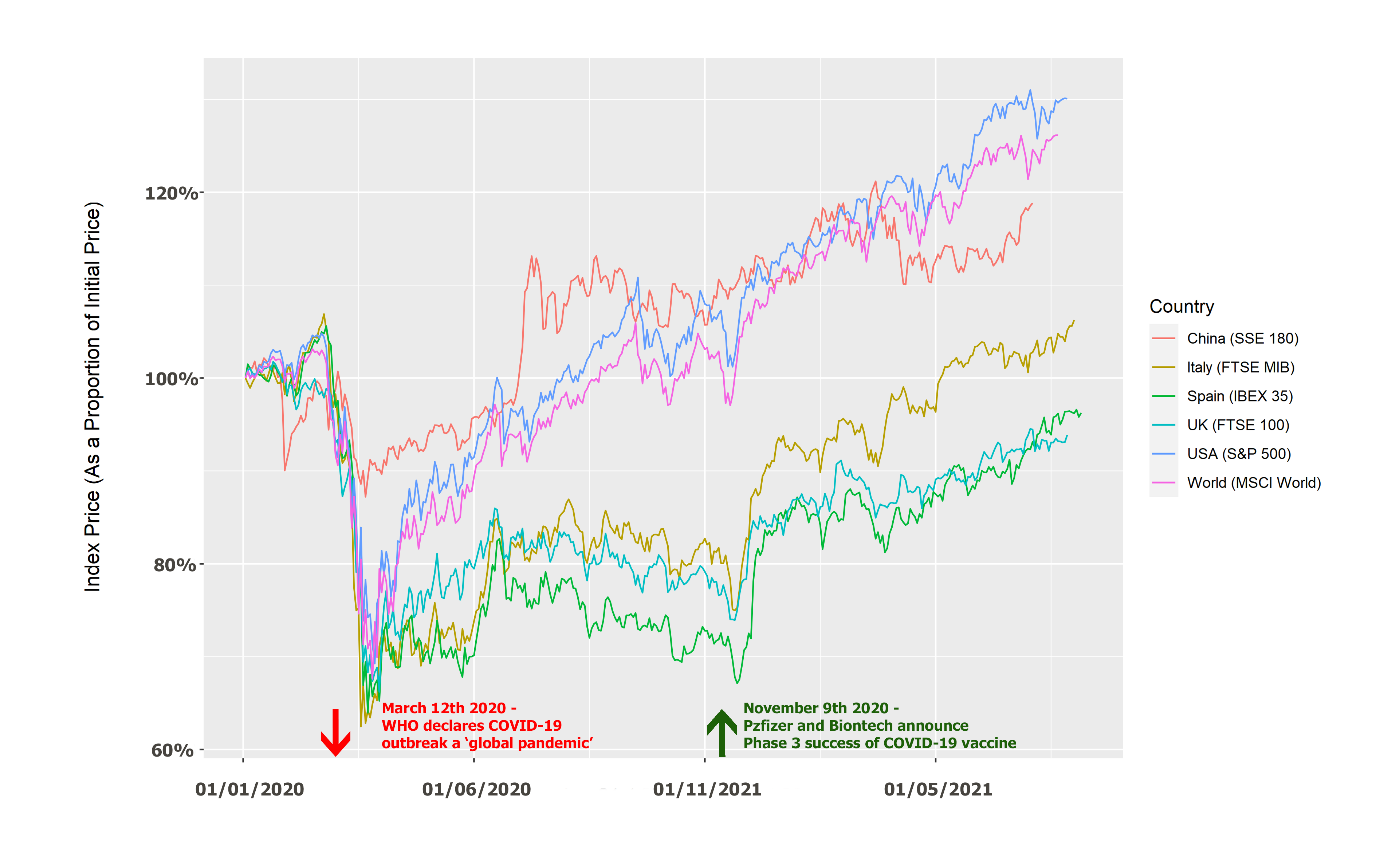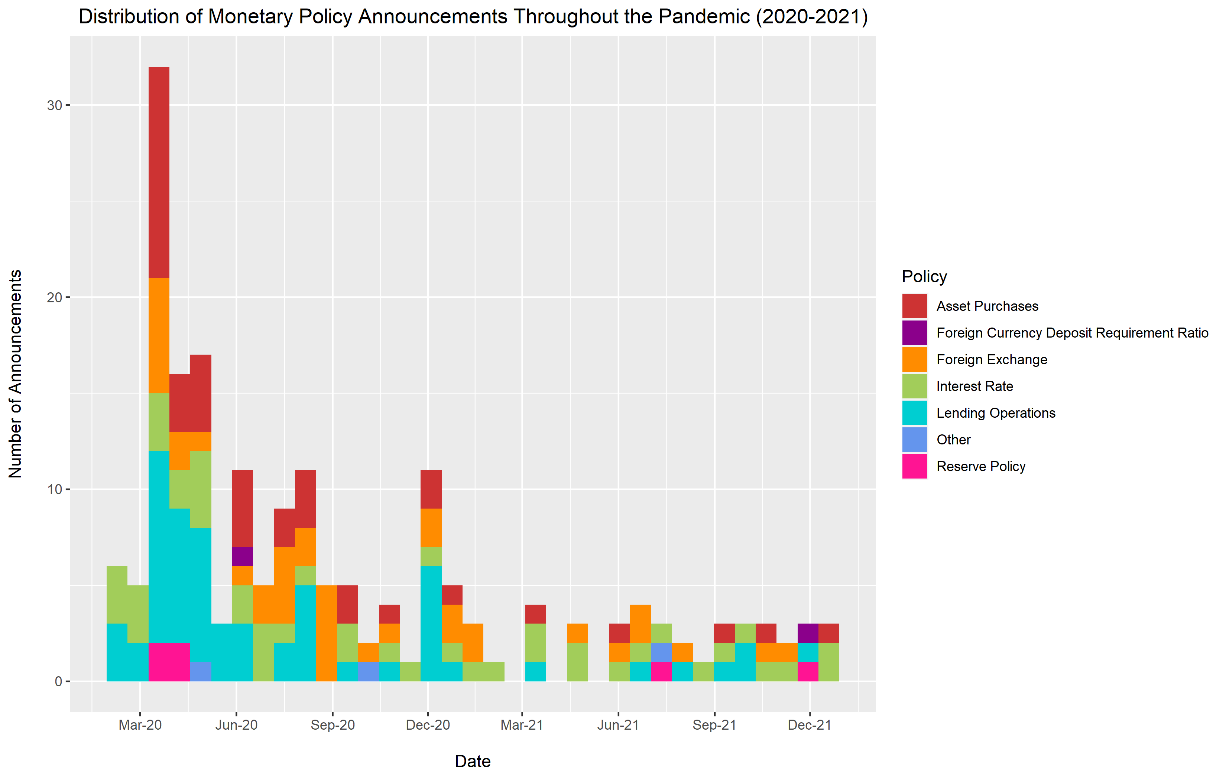
FINANCIAL MARKETS DURING COVID-19
The unprecedented closure of borders, workplaces, and traditional commerce due to the COVID-19 pandemic had significant financial impacts. While markets collapsed at rates unseen for quite some time, the immediate recovery was meteoric in both magnitude and pace. This raises questions about the increasing power of societal dynamics, rather than fundamental financial dynamics, in influencing trading patterns and prices. Led by my graduate student Niall O’Donnell, this research stream queries the recovery of economies, industries and financial markets, and the role central institutions hade in influencing the impact of COVID-19.

We explore four strands of impact in this research space, each of which is addressed in a separate academic paper. The first research paper verified and explored how the growth in COVID-19 directly related to global equity markets as the pandemic unfolded, while controlling for a number of typical financial market drivers. The second paper looked at the impact that vaccines had in stabilising markets. The third paper investigated the impact that monetary policy interventions had on the performance of banking stocks. Due to their positioning as critical players in the facilitation of liquidity across the wider economy, banks are heavily reliant on expansionary or contractionary monetary policy measures undertaken by central banks. As such, looking at investor reactions to central bank intervention announcements during COVID-19 gives us a fair idea of the financial markets’ perception on the credit quality, stability of liquidity, and fears of banking insolvencies during the pandemic.

RELEVANT WORKS
- O’Donnell, N., Shannon, D. and Sheehan, B., – 'The Impact of Monetary Policy Interventions on Banking Sector Stocks: An Empirical Investigation of the COVID-19 Crisis'. Submitted for Publication
- O’Donnell, N., Shannon, D. and Sheehan, B., – 'From Vaccines to Volatility – An Analysis of Stock Market Drivers as COVID-19 Evolved'. Submitted for Publication
- O’Donnell, N., Shannon, D. and Sheehan, B. (2021) 'Immune or at-risk? Stock markets and the significance of the COVID-19 pandemic', Journal of Behavioral and Experimental Finance, 30, 100477. DOI: 10.1016/j.jbef.2021.100477


